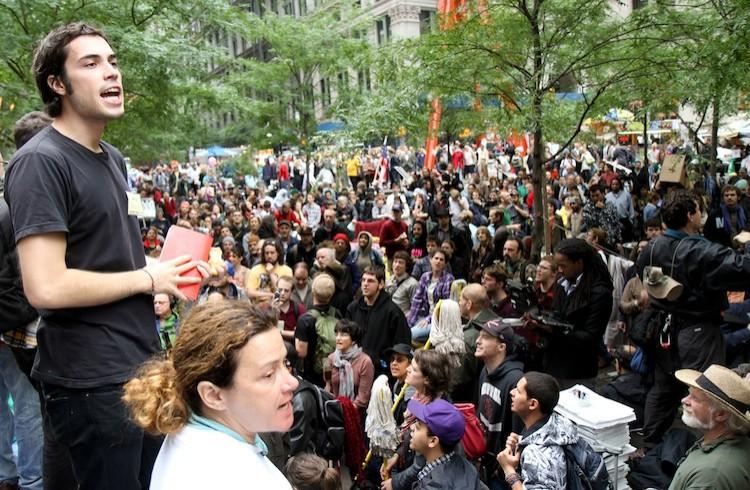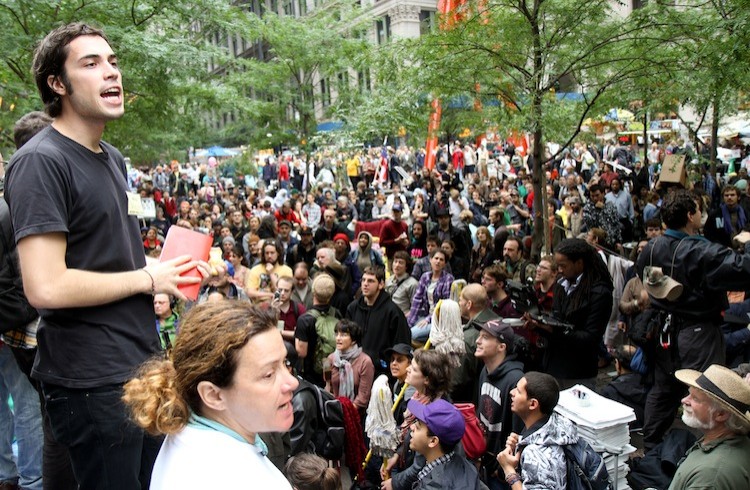As Protesters Increase, Pressure on Decision Process
Occupy Wall Street’s decision-making structure is based on giving everyone a voice, yet this goal may be becoming unrealistic, as the protest group grows larger.

Zachary Stieber
Senior Reporter
|Updated:
Zachary Stieber is a senior reporter for The Epoch Times based in Maryland. He covers U.S. and world news. Contact Zachary at [email protected]
Author’s Selected Articles





